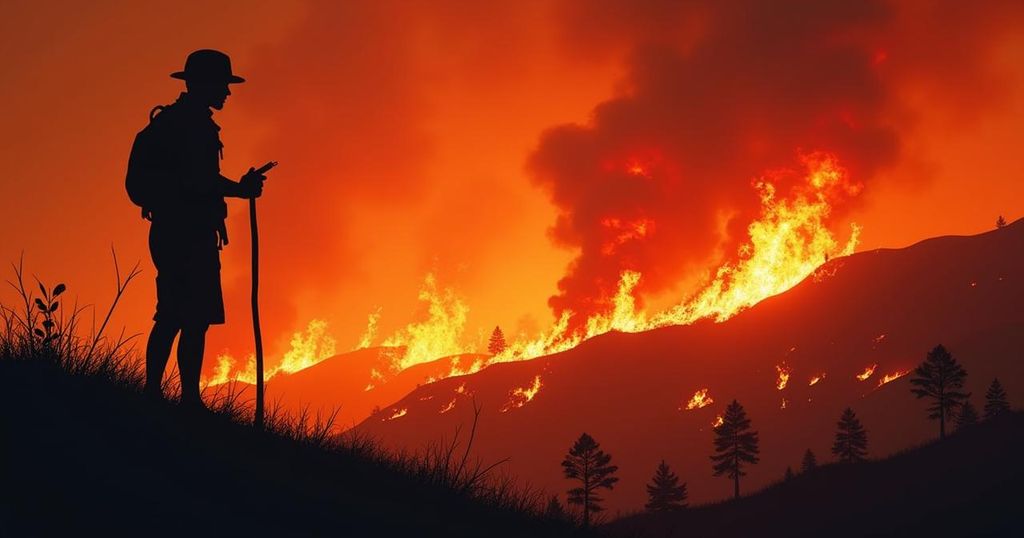Brazil faces an unprecedented environmental crisis with record-breaking wildfires, primarily driven by human activities, devastating ecosystems and public health. The current situation highlights a stark contrast between political aspirations for climate leadership and practical efforts to address severe ecological challenges. As Brazil prepares to host COP30, it is crucial for the government to adopt coherent environmental policies that align with its rhetoric and international commitments.
The state of Brazil is grappling with unprecedented climate challenges as it faces a catastrophic wildfire season, exacerbated by climate change and extensive deforestation methods used for agricultural purposes. Conditions such as extreme heat, severe drought, and intensified rainfall patterns have become the new normal, causing widespread environmental devastation. Current reports indicate that over 47,000 fire alerts have been issued in 2024 alone, marking the worst fire season in over a decade. Major cities like São Paulo have experienced the worst air quality on record, while health crises related to respiratory issues have surged due to rampant smoke pollution. Climate scientists underscore that the fires in the Amazon and Pantanal, predominantly caused by human activities, pose dire threats to Brazil’s ecosystems and economic stability. This disaster has not only endangered Brazil’s biodiversity but has also posed significant economic strains on agribusiness, with reported damages reaching R$2 billion in São Paulo alone. In the wake of these challenges, Brazil is preparing to assume a prominent role in global climate discussions, particularly as it gears up to host the UN Climate Conference (COP30) in December 2025. However, President Lula’s administration is under scrutiny for its inability to align rhetoric with action plans effectively. Despite somewhat improved strategic initiatives compared to previous leadership, there remains considerable skepticism surrounding the consistency and timing of climate policies. Moreover, the administration’s plans to expand oil exploration, alongside proposed infrastructural developments in environmentally sensitive regions of the Amazon, have drawn significant criticism. These contradictory actions jeopardize Brazil’s aspirations for international leadership in combating climate change. To strategically address this dual challenge of development and environmental preservation, Brazil must embark on an ambitious path toward decarbonization. This entails establishing strong greenhouse gas emission reduction targets, incorporating adaptation strategies into broader economic policies, and ensuring efficient governance at all levels.
Brazil is currently experiencing an environmental crisis characterized by extensive wildfires fueled by climate change, deforestation practices, and adverse agricultural policies. As climate extremes manifest through intensified droughts and floods, ecosystems such as the Amazon and Pantanal are at severe risk. Given its crucial role in global carbon absorption and biodiversity, Brazil’s challenges have far-reaching implications not just locally, but regionally and globally. The significance of Brazil’s response to these challenges is particularly accentuated as the country prepares to host pivotal international climate discussions, raising questions about its commitment to meaningful climate action in the face of escalating natural disasters.
In summary, Brazil stands at a critical juncture where it must navigate the complex relationship between economic development and environmental stewardship amid climate crises. The alarming increase in wildfires and the fragility of vital ecosystems underscore the urgent need for coherent, timely climate policies that reflect the nation’s global aspirations. Only through rigorous actions, ambitious targets, and adaptive strategies can Brazil claim its role as a leader in the international climate arena. The forthcoming years will be decisive in determining the nation’s path toward a sustainable future, balancing the pressing demands of economic growth with the imperative of environmental conservation.
Original Source: thecityfix.com






